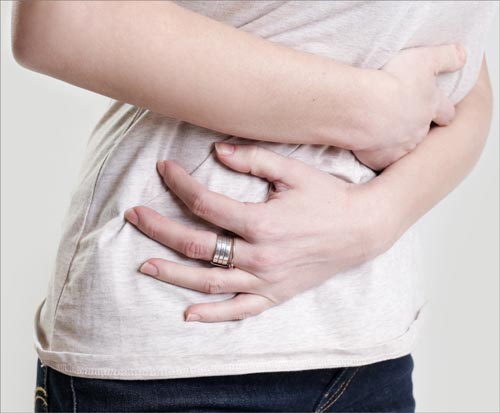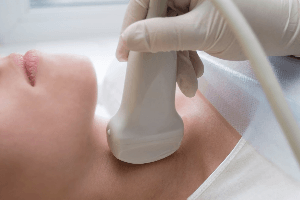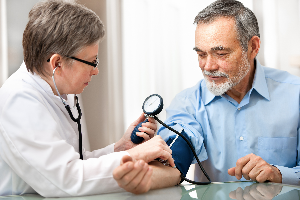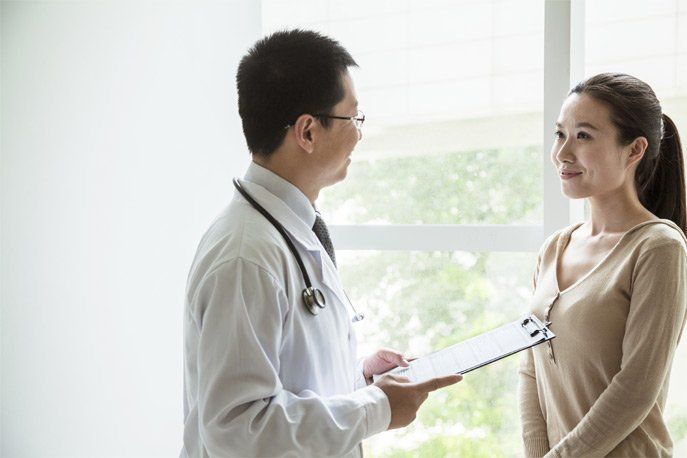COMMON CAUSES OF PELVIC PAIN IN WOMEN
Admin • September 16, 2021

As a woman, your reproductive health is a top priority - especially if you want to have children someday. With that in mind, getting regular gynecological check-ups is absolutely essential.
Women's health exams take on a whole new level of importance when something doesn't feel right. A lower abdominal pain can have many different causes. While some of them may be gastrointestinal, it's also very possible that the root of the pain or discomfort is gynecological. If a medical professional has ruled out stomach or intestinal issues, a specialist in women's medicine can evaluate possible reproductive system problems.
What are some of the most common culprits behind lower abdominal pain in women? If you're experiencing discomfort (or something more) below the belly, take a look at what some of the possibilities are. Keep in mind that only a licensed, qualified medical professional can offer a diagnosis. But arming yourself with information can help you to have an educated, effective conversation with your doctor.
Uterine Fibroids
Uterine fibroids are tumors that grow inside of the uterus. Even though the word tumor often brings up images of cancer, these tumors are typically benign. In other words, fibroids are rarely cancerous. Even though reproductively mature women of any age can have a fibroid, these uterine tumors are most common in women who are in their 40s and 50s.
Women who are obese, eat a significant amount of red meat, and have a family history of fibroids are all at increased risk. Having these risk factors doesn't mean that you will definitely develop fibroids. But it does mean you're more likely to have them than other women are.
While some women with fibroids experience no symptoms, others can have heavy periods and pain. The doctor will need to examine your uterus and use imagining tests, such as an ultrasound or MRI, to diagnose this condition.
Depending on the size and placement of the fibroid and your discomfort level, the doctor may recommend medications - such as ibuprofen or anti-hormonal drugs - surgery, or radiofrequency ablation, which shrinks the fibroids without destroying the surrounding uterine tissue.
Endometriosis
Endometriosis is another common cause of abdominal pain in women. It's normal for tissue to grow inside of a woman's uterus. But endometriosis causes the tissue (or endometrium) to grow outside of the uterus. In some women, endometriosis can spread onto the ovaries, fallopian tubes, and possibly even beyond the pelvic region.
Normal endometrial tissue goes through a regular monthly cycle of thickening, breaking down and exiting the body during menses. When this tissue grows outside of the uterus, it has nowhere to go. This causes pain and may irritate the surrounding tissue. Over time, this irritation results in scarring and bands of fibrous tissue.
Women with endometriosis often have extremely painful periods, pain during intercourse, heavy periods and infertility. After a doctor's diagnosis, the medical professional may recommend pain medications, hormonal therapy or surgery to reduce the symptoms and alleviate the pain.
Ovarian Cysts
When a woman ovulates, her body releases an egg from one of her two ovaries. It's possible for a small cyst (a fluid-filled sac) to form during this process. There are several different types of ovarian cysts. Follicle cysts happen when the sac around the egg (the follicle) never ruptures but continues to grow inside of the woman's body. These typically resolve on their own within three months.
Corpus luteum cysts happen when the follicle does rupture but doesn't shrink down. If this type of cyst doesn't resolve itself on its own, it can grow, causing pain. Along with these types of cysts, dermoids and cystadenomas can also occur but typically don't cause problems.
In most cases, no treatment is needed. But if you're in serious pain or the cyst continues to grow, your doctor may recommend surgical removal.
Are you experiencing unexplained pelvic pain? When was your last women's health exam? Contact Hampstead Medical Center PC for more information and to schedule an appointment.

The IUD, or intrauterine device, is one of the most effective methods of birth control available. Unlike birth-control pills, you do not need to remember daily to administer medication, and the device itself lasts longer than shots and is easier to use than rings. Many women find all of these benefits desirable for a birth-control method. There are two general types of IUDs available to women. The first type is the copper IUD, and the other is hormonal. Which one is right for your personal birth-control needs?

Although the risk of cardiovascular disease increases as you get older, many people who die suddenly of a heart attack didn't previously know they had heart disease. That's why identifying risk factors for heart attack and stroke is so critical to cardiovascular health. Fortunately, with regular exams and the many types of screening tests available, doctors can detect early signs of heart disease.

Even if you've never had cause to doubt your thyroid function, if you're a female who has recently given birth, you may be at risk for thyroid issues. An estimated 12 percent of Americans deal with thyroid trouble at some point during their adult lives, and women are significantly more likely than men to develop a thyroid-related ailment. Unfortunately for new mothers, many of the most common signs of an underactive thyroid (like weight gain, mood swings, fatigue, and irritability) are also quite common for those dealing with a newborn's frequent night wakings and the realities of a post-partum body. Read on to learn more about some common (and not-so-common) signs that you could be dealing with a pregnancy-induced thyroid problem as well as some treatment options that can be safely administered or performed while you're breastfeeding. What Can Cause Thyroid Problems During Pregnancy? As with many other hormonal disorders, there are often more questions than answers when it comes to thyroid function. However, researchers have pinpointed a few factors and health conditions that can raise the risk of a woman’s developing a thyroid issue during or immediately after pregnancy. For example, while only around 7 percent of women are at a general risk of developing postpartum thyroiditis, this risk increases to 25 percent for women who have Type 1 diabetes or who dealt with elevated antithyroid antibodies during pregnancy. Women whose anti-peroxidase (anti-TPO) antibodies were elevated during pregnancy may have a 1 in 2 chance of developing postpartum thyroiditis, and those who have dealt with thyroid issues in the past (or during previous pregnancies) also deal with a significantly increased risk. In other cases, thyroid problems may have no cause that can easily be pinpointed; the rush of various hormones during pregnancy and the strain they can put on various systems, including the endocrine system, can create a sort of "perfect storm" in which thyroid problems may thrive. What Are Some Signs You're Dealing With Post-Pregnancy Thyroid Issues? Thyroid problems can take a number of forms, including hypothyroidism (an underactive thyroid), hyperthyroidism (an overactive thyroid), Graves' disease (an autoimmune condition that causes goiter), or Hashimoto's disease (an autoimmune condition in which the body's immune system attacks healthy thyroid cells, eventually stopping all thyroid function). The signs and symptoms for each thyroid disorder are unique and often at opposite sides of the spectrum. For example, hypothyroid patients often report being cold, having dry skin, sleeping more than normal, or gaining weight without trying while hyperthyroid patients sweat profusely, suffer from insomnia, and can lose a significant amount of weight in a brief period. Postpartum thyroiditis often manifests as either an underactive or overactive thyroid, which usually normalizes itself in a few months. Symptoms lasting longer than that or that appear to be getting worse may necessitate medical intervention. What Treatment Options for an Underactive Thyroid Are Best for New Mothers? Whether you suspect you have postpartum thyroiditis or have been formally diagnosed, you may be worried about how your potential treatment options could impact your ability to breastfeed and what effect (if any) they might have on your child. Fortunately, there are a number of effective options from which to choose. If your postpartum thyroiditis is deemed autoimmune in origin, there is some evidence that taking selenium supplements could help normalize your thyroid function without requiring you to take hormonal medication (which might pass into your milk supply). If your symptoms aren't severe and don't impact your daily life, you may instead opt for watchful waiting, maintaining contact with your doctor and reporting any worsening symptoms but avoiding medication or other treatment for the time being. However, if your doctor recommends supplemental thyroid hormone, this usually means some intervention is necessary to prevent permanent damage to your thyroid and the organs and systems that depend on a steady dose of hormones. Make an appointment with Hampstead Medical Center PC to get started taking care of your health.







